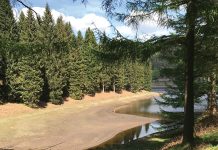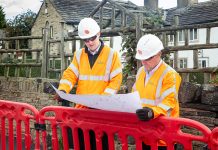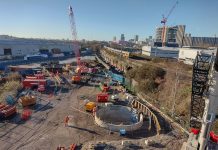The water environment faces diverse and increasing pressures arising from a combination of factors including climate-driven changes in hydrological extremes, population growth and floodplain development, changes to carbon and nutrient cycles, and the legacy of long-term physical modification of water bodies.
These pressures generate threats to people, property, infrastructure, wildlife and key ecosystem services in river catchments. An integrated approach to catchment management, traversing traditional disciplinary boundaries and recognising the importance of interactions between hydrological, geomorphological, biogeochemical and ecological systems is crucial for the development of sustainable solutions to water resource issues. Despite this, there remains a lack of experts with broad interdisciplinary training. Our degree programme is designed to produce the next generation of specialists in integrated catchment management.
The Integrated Management of Freshwater Environments MSc programme is run by the School of Geography at Queen Mary University of London (QMUL). Our students study river science, policy and management and prepare for a career in the water and environment sector. Students benefit from research-led teaching in one of the UK’s top geography departments (ranked 5th for the quality of research outputs in REF2014) with state-of-the-art laboratory and computing facilities. The River Laboratory, for example, offers unparalleled facilities in London for research into river behaviour. Digital camera equipment and supporting software enables river morphology to be captured in 3D using photogrammetry. Two flumes – a sediment transport demonstration channel and a river simulator – enable scaled experimental modelling of river processes to support the development of sustainable river management and restoration solutions.
A core understanding of freshwater environmental systems and the key policy and legal frameworks that underpin their management is essential for successful catchment management. Our students gain this through classroom teaching by academic staff and external experts from the water industry combined with fieldwork, laboratory analysis, numerical modelling and independent research.
In addition to developing fundamental scientific understanding across geomorphology, hydrology, biogeochemistry and ecology, our students receive hands-on training in key methods relevant to catchment management including river assessment methods, river restoration design, flood estimation and inundation modelling using industry standard software, monitoring of carbon, nutrients and pollutants in aquatic environments, and working with remotely sensed data and Geographic Information Systems (GIS). Fieldwork is a key component of the programme, from our field trip to the highly dynamic, near-natural Fiume Tagliamento in Italy – one of Europe’s last remaining ‘wild’ rivers, to the heavily modified rivers in London and South East England.
Our aim is to produce outstanding scientists capable of developing interdisciplinary solutions to priority water resource and catchment issues. To help achieve this, we work closely with an Advisory Board comprising representatives from government, private and third sector organisations in the water industry to ensure that our programme is up-to-date in meeting key industry needs. Networking and industry experience is built into our programme from the beginning, and students are encouraged to take advantage of the vast opportunities for engaging with seminars, debates and other events across London during their studies. We also work with local Environment Agency teams to provide opportunities for students to gain experience in key operational procedures in catchment monitoring and management. Students have the opportunity to conduct their dissertation research in collaboration with an external partner organisation, producing research that directly addresses key questions in catchment management. This has created, for example, four years research and development work on the use of wood in river restoration in collaboration with the Environment Agency, which fed into the Thames River Basin Management Plans and led to the development of a UK-Brazil Learning Partnership on River Restoration in 2015 initiated by one of our alumni.
Our graduates have secured jobs across the water and environmental sector in organisations including: Affinity Water, CH2M, Environment Agency, Jacobs, JBA Consulting, Rivers Trusts, Thames Water and environmental consultancies in the USA and Brazil. Increasingly we are seeing demand for our part-time variant from colleagues already in the water sector (water companies, environmental consultancies and the Environment Agency) who require further professional training. Postgraduate Diploma and Postgraduate Certificate options are also available.
Vinicius Delboni completed the MSc programme in 2015. His thesis was completed in collaboration with the Environment Agency, and used a 1D hydraulic model to explore the hydraulic effects of large wood features installed for habitat improvement on the River Blackwater, Hampshire. Vinicius then went on to secure a job with the makers of the software he used for his modelling project, CH2M. He says “I was looking for a masters programme where I could develop flood risk management skills and, at the same time, prepare myself for a career in consultancy. QMUL Geography could offer exactly that. The variety of coursework throughout the programme helped me to prepare myself for delivering consultancy style reports to very strict deadlines, as well as providing me with hands on experience using cutting edge industry software, such as ArcGIS and Flood Modeller. I received help and important feedback from my academic supervisor when job hunting and after three months I was able to secure the job I wanted.”





